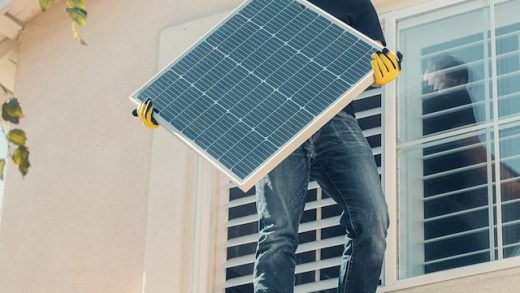While solar energy is a green alternative to traditional power sources such as coal, oil, and natural gas, which are responsible for greenhouse gases, air and water pollution, and toxic wastes, it has some environmental impacts.
Luckily, there are many ways to offset the impact of residential solar panel installation on the environment. From saving money on electricity bills to reducing carbon emissions, these benefits can make a real difference in the long run.
Save Money on Electricity Bills
Solar panels are an excellent way to save money on electricity bills. They can significantly offset your energy usage or even eliminate it, depending on the climate in which you live and how much energy you use.
Installing solar panels is an investment that pays off in the long run. You can either install a system or hire a solar contractor. You’ll also need to plan for your family’s lifestyle and future energy needs.
In addition to the savings on your electric bill, residential solar panels can significantly reduce greenhouse gas emissions and lower your carbon footprint. In addition, they can increase the value of your home and reduce your property taxes.
Reduce Greenhouse Gas Emissions
Solar energy is one of the most sustainable forms of energy available, as it does not involve using fossil fuels. Unfortunately, fossil fuels primarily contribute to air pollution and climate change.
Solar panels may have a substantial environmental impact on residential or commercial premises. This is because they reduce greenhouse gas emissions and other air pollutants.
In addition, solar power systems can often reduce water consumption and withdrawal, which helps reduce pollution. Additionally, solar energy can help increase property value.
The impact of solar panel installation on the environment can be a long-lasting benefit to home and business owners. It may dramatically reduce your carbon footprint while improving your family’s health and well-being.
Another benefit of solar energy is that it may help you save money on your energy bills. Again, it is because solar panels are connected to your local utility, and any excess power generated by the system will be sent back into the grid.
Installing a household solar panel system may influence your power bill. However, it can save you a lot of money over time and help your system pay itself back if you are on a net metering program.
For every kilowatt-hour of electricity that you generate, you are effectively reducing the carbon emissions that your local power utility produces.
Reduce Carbon Footprint
Installing residential solar panels is an excellent way to save money on electricity bills and reduce your carbon footprint.
It means that the environmental impact of solar panel installation is significantly smaller than other renewable energy sources such as wind power and geothermal. It is because solar power does not rely on fossil fuels, which are known to cause global warming.
However, other factors must be considered in determining your system’s net carbon footprint. First, the raw materials and minerals used in manufacturing the panels will have a carbon footprint. It includes the transportation of the metals, the machining process, and the panels’ production.
Next, your electrical usage will also have a carbon footprint. Most people waste a lot of energy in their homes by leaving unused lights or appliances plugged in when they’re not in use.
If you’re considering installing a solar panel, it’s essential to research and finds the best company to install the system. It will ensure you’re getting the most out of your investment. Plus, you may be eligible for federal and state tax benefits that make your system even more affordable.
Increase Home Value
Homeowners who install solar panels can typically recoup the cost of their investment in the form of lower energy bills and tax credits. They also have the added benefit of a healthier environment and less dependence on fossil fuels.
As electricity costs continue to rise, homeowners are increasingly looking for ways to save money and protect against high energy costs. A rooftop solar system can help them do this while also increasing the value of their property.
While the exact amount a solar installation adds to your home’s market value will vary, according to NREL, it is likely to be several times more than you initially spent. However, it does take time for a homeowner to see this return on their investment.
One study found that homeowners who sold their homes within five years of installing a solar system were almost guaranteed to get back their entire installation cost. It was particularly true for those who opted to buy instead of lease their systems.
Depending on your state’s electricity rates, this could be substantial, especially in states with higher electricity costs.
If you’re considering selling your home, consider purchasing a solar power system with battery storage. It will allow you to store any excess electricity that your system produces and use it later on, which can help your property sell more quickly.




